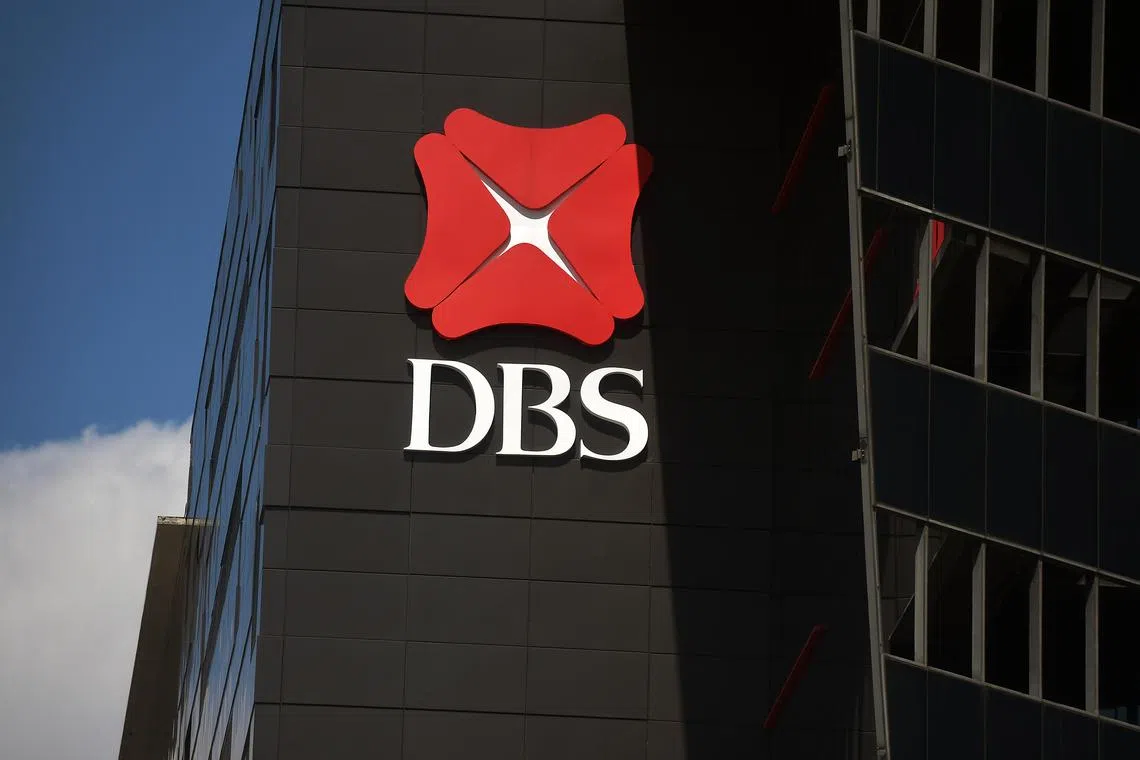DBS had $100m exposure to money laundering bust; Q3 profit of $2.63b beats forecasts
Sign up now: Get ST's newsletters delivered to your inbox

DBS CEO Piyush Gupta expects that net profit in 2024 will be maintained at this year’s record level.
PHOTO: ST FILE
Follow topic:
SINGAPORE – DBS Group Holdings on Monday reported quarterly earnings that beat forecasts and said it expects net profit next year to match 2023’s level amid challenges to loan growth and spillover from geopolitical tensions.
Singapore and South-east Asia’s largest lender posted a 16 per cent year-on-year rise in net profit to $2.59 billion for the third quarter.
Excluding one-time costs of $40 million from the integration of Citibank Taiwan, earnings rose 18 per cent to $2.63 billion, beating the $2.54 billion forecast by analysts in a Bloomberg poll.
The Taiwan unit was consolidated on Aug 12 and made DBS the largest foreign bank there by assets.
The board declared a dividend of 48 cents a share for the third quarter, unchanged from the previous quarter. This brings the dividend for the nine months to $1.38 a share.
Compared with the record earnings in the previous quarter, net profit was 2 per cent lower as the higher income was offset by increased expenses and higher allowances taken for exposure linked to a recent money laundering case here.
Major banks including DBS were creditors to investment companies linked to individuals arrested and charged in a major money laundering scandal involving more than $2.8 billion of assets
DBS chief executive Piyush Gupta disclosed that the bank had about $100 million in exposure to the money laundering case.
These were mostly property purchases or retail customer accounts used to finance properties, he said.
As a result of provisions “prudently taken” for the laundering case, specific allowances for expected credit losses jumped almost eight times from a year ago to $197 million, or 18 basis points of loans.
Mr Gupta added that the saga is unlikely to have a significant impact on Singapore’s wealth management scene, adding: “I think net new money flows have continued to be robust through the third quarter, and they continue to be fairly solid in October as well.”
Meanwhile, the bank’s non-performing loan ratio stood at 1.2 per cent, unchanged from the previous quarter.
General allowances of $18 million were set aside for potential bad loans, compared with $153 million taken a year ago.
“We are not seeing any major pickup in delinquencies or stresses in any of our portfolios. If the world gets much worse, we have enough GP (general provision) cushion,” Mr Gupta said.
He noted that the net interest margin (NIM) – a key gauge of a lender’s profitability – rose for the seventh consecutive quarter on the back of higher interest rates.
But, while higher-for-longer rates support margins, there will be a likely trade-off with loan growth, he told a media briefing on Monday.
Higher interest rates have weighed on customers’ appetite for loans, which at DBS grew just 1 per cent, or $5 billion, in constant-currency terms from the previous quarter, to $420 billion.
This came even as the NIM of 2.82 per cent was stable from the previous quarter, expanding 52 basis points from a year ago.
For 2024, Mr Gupta said there is uncertainty from macroeconomic slowdown and geopolitical risks, but he expects net profit will be maintained at 2023’s record level.
While further rate hikes are unlikely, high interest rates are unlikely to come down until the second half of 2024, weighing on growth in Western economies. China’s recovery also remains patchy, he said.
The bank is also keeping an eye on the indirect impact of Middle East tensions on oil prices, and the potential trade deficit of oil importers in Asia.
A bright spot is the momentum in fee income, which will likely be sustained by wealth management and cards, Mr Gupta said.
The Citi Taiwan integration will also help, with DBS noting that the business has boosted its credit card accounts in Taiwan by fivefold to more than three million, and tripled investment assets under management to more than $12 billion.
At home, the bank is focusing on shoring up measures to respond to its spate of digital disruptions in 2023, in areas like system recovery and technology risk governance.
“We will dedicate ourselves to executing the comprehensive set of measures we recently announced to address the series of digital disruptions, for which we are truly sorry. We are committed to strengthening our technology resilience and ensuring customer service reliability,” Mr Gupta said.
DBS’ total income in the third quarter rose 16 per cent year on year to a record $5.19 billion.
Net interest income for the bank’s commercial book grew 23 per cent year on year to $3.68 billion in the third quarter.
The consolidation of Citi Taiwan contributed $10 billion to loans, but excluding the unit, non-trade corporate loans declined 1 per cent, or $2 billion, from the previous quarter from higher repayments, while trade loans fell 3 per cent, or $1 billion, due to unattractive pricing.
Housing and other consumer loans were 1 per cent, or $1 billion, lower quarter on quarter.
Deposits grew 2 per cent, or $12 billion, in constant-currency terms from the previous quarter to $531 billion due to the consolidation of Citi Taiwan.
But underlying deposits were unchanged as a fall in current and savings account deposits was offset by an increase in fixed deposits.
Net fee income rose 9 per cent to $843 million year on year on the back of higher wealth management fees from the sales of bancassurance and investment products.
Card fees grew 21 per cent to $269 million year on year from higher spending by consumers and the integration of Citi Taiwan, while loan-related fees rose 12 per cent to $137 million.
Transaction fees were little changed at $228 million, while investment banking fees fell 16 per cent to $21 million due to slower capital market activities.
Other non-interest income rose 8 per cent from a year ago to $499 million from higher treasury customer sales.
DBS shares closed 1.4 per cent higher at $33.75 on Monday, while UOB climbed 1.05 per cent to $28 and OCBC rose 1.1 per cent to $13.15.
UOB on Oct 26 reported that its core earnings rose 5 per cent year on year to $1.48 billion. OCBC will post its results on Friday.


